Programa de Pós-Graduação em Antropologia (PPGA)
 The Program
The Program
The Postgraduate Program in Anthropology at the Federal University of Pernambuco (PPGA-UFPE) began with the foundation of the Master's Course in Anthropology in 1976-1977, bolstering its history with the creation of the PhD course in 2001. The PPGA's founding is part of a project by Pernambucan anthropologists that educates professionals within the field in a dialogue with American anthropology. Over time, the origin of the formation of the faculty was expanded when professors who studied in French, British, Italian, Dutch and German universities, in addition to those from different Brazilian universities, particularly the UFPE. This variety in the faculty training is reflected in the research and studies, while at the same time, makes it possible to deal with different empirical themes with methodological and theoretical diversity, in alignment with the history of Anthropology in Brazil and for Brazilians.
The PPGA-UFPE's primary objective is to produce and share Anthropological knowledge, while training professionals with a critical view of socio-cultural reality. Guided by the theoretical productions that are fundamental to the history of the subject, modernising them and contributing to discussions on emerging trends in research, as well as promoting interfaces with other social and human sciences, The Program´s goals and actions, developed jointly and within the research core, adhering to the demand for specialities in the contemporary anthropological field.
Courses:
UFPE's Graduate Program in Anthropology offers courses for Master and PhD degrees in Anthropology. Comprised of 18 faculty members, its infrastructure favors the development of research projects, including a modern system of libraries and internet access available throughout the university campus. Cooperation between students and teachers is dynamic, fostering a lively and supportive environment for the solid performance of academic activities.
- MASTERS (24 months):
The course offers basic theoretical and methodological training. Graduates of the Master's course are expected to: i) have skills in the consistent interpretation of theories and in the application of basic methodologies, up to date with relative autonomy in the field of anthropology; ii.) be able to establish correlations between research and social practice; iii.) have an ethical commitment in the exercise of their activities; iv) take a political position in the defence of people's rights affected by inequalities, in the area in which they work,.
- DOCTORATE (48 months):
In-depth research tools are developed, facilitating a more solid intellectual and professional training. Graduates of the PhD course are expected to: i) possess abilities in the consistent interpretation of theories and in the application of basic methodologies, up to date with relative autonomy in the field of anthropology; ii.) have the ability to establish relationships between research and social practice; iii.) have an ethical commitment in performing their activities; Iv.) take a political position in defence of the rights of people affected by inequalities, in the area in which they operate, . It is also expected that they develop in-depth research tools with autonomy, creativity and innovation in the production of knowledge.
FAQ (Frequently Asked Questions)




